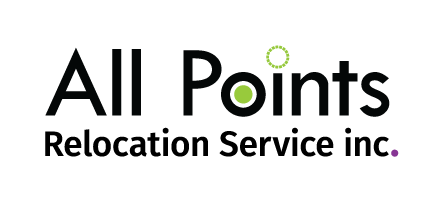Duty of care has become more relevant during the Covid-19 crisis and it is up to Human Resources to look at key aspects of their relocation practices. Corporate Relocation Services support duty of care initiatives in profound ways, but you have to do your homework in these times.
Check out our tips!
1. Interview your relocation management company
Even the best relocation companies have had to deal with fewer mobility numbers. How did they do it? We know that lay-offs were necessary during this pandemic. There’s nothing to judge here, it’s the simple fact that the volumes of relocation are lower. But you have the right to ask your Relocation Management Company what their current caseload per relocation consultant is.
Here are a few questions you should ask them:
- How do they support their employees?
- How is their ability to call back talent: were employees fired or temporarily laid off?
- Do they have a back-to-normal business plan?
These are reasonable questions, especially if you are a low mobility account.
Employee Relocation Companies tend to keep their key account consultants working on high-volume relocation accounts and let go of their low-volume relocation consultants in times like this. Professionals with high volume relocation tend to be less flexible and work with the conviction that everyone is moving in a similar fashion, but that may not be the case for you. Low volume accounts need flexibility as they tend to shift their relocation practices from case to case, and this does not always fit the work-style of a Relocation Consultant used to larger accounts, and the service may suffer.
If you have lost your relocation consultant to a layoff and you are a low-mobility account, you should check what accounts your new consultant used to work.
2. Learn how your relocation management company supply network is operating
When thinking about corporate relocation services, you always have to think about your relocation company’s supply chain vendors are doing during this crisis. Pay attention to these questions:
- What happened to the movers and destination services providers who are in direct contact with your staff?
- Are they equipped with PPE and, after each service, do they sanitize their vehicles?
- How is a new home or temporary housing being sanitized?
- Are there any extra services offered to promote the well-being of relocating workers?
Do not be afraid to ask these questions and ask for details. If you chose a corporate relocation services provider to work with part of their services is to take on the role of supplier manager. They should be able to answer these questions for you. This is a duty of care issue for sure.
3. Focus on destination service providers to protect your employees
Whether it is Destination Services Canada or Destination Services China -in any country, when a worker relocates, there are few service providers he or she has direct contact with than with the destination service provider. To keep everyone safe, destination service providers are adapting and innovating.
During a destination service, the company should be able to address how to reduce personal contact. It is important to know how this is handled if a relocating employee prefers no person-to-person contact. All Points has undertaken a lot of work to ensure that personal exposure is minimized. For those who want no contact, we offer virtual home finding services. For those who want to select a property during their isolation period, we visit properties with a Facetime application.
And how are the destination service providers visiting properties physically? What happens in the government offices? To ensure that employees and their families feel secure with the service we provide, we need to take all these things into account. During the pandemic, Destination Services are the #1 Duty of Care service. You need to know how it is being delivered.
4. Stay on top of your immigration and relocation taxes
When dealing with international corporate relocation, corporations always have to pay attention to changing regulations. Now, changes are taking place at a rapid pace in immigration requirements and eligibility. Even if there is no policy announcement, there can be practical differences in enforcement, as governments feel insecure with international travel. Staying on top of current updates that could influence your employees is important. If you have had employees that had to repatriate, or are starting their assignment over again, ask your tax provider if there are any actions you can take to help these people have any tax implications.
5. Re-evaluate “naked” lump-sum relocations
All Points’ Relocation Allowance Management has become the #1 IT Relocation Service, but it may be right for many types of corporations. What is a “naked” lump-sum? It is a limited amount of allowance or a lump-sum amount that is being offered for a relocation with no form of relocation support. When completely unsupported, this can fly in the face of any duty of care notion. The worker is on his or her own to handle their own relocation.
Now is the time to support your employees, so you should add some form of help from either a corporate relocation service company or a destination service company or both, if you have this type of lump-sum policy. Perhaps you can reduce the lump sum and mix it with a defined allowance for household goods. To best protect your staff, choose a trusted mover, someone you are confident that will disinfect their vehicles after each use. Add a small destination service. Adding benefits to lump sums need not break the bank.
Employees are more nervous, have more questions and deal with more complexity than ever before in their relocation. Give them the professional help they need.
If you take all these steps into account, you can be sure that your relocations will be professionally handled during the pandemic. With expert guidance, your transferees will remain safe and healthy throughout the process.

